Utkarsha Agwan
Machine Learning for Smart and Energy-Efficient Buildings
Nov 27, 2022Abstract:Energy consumption in buildings, both residential and commercial, accounts for approximately 40% of all energy usage in the U.S., and similar numbers are being reported from countries around the world. This significant amount of energy is used to maintain a comfortable, secure, and productive environment for the occupants. So, it is crucial that the energy consumption in buildings must be optimized, all the while maintaining satisfactory levels of occupant comfort, health, and safety. Recently, Machine Learning has been proven to be an invaluable tool in deriving important insights from data and optimizing various systems. In this work, we review the ways in which machine learning has been leveraged to make buildings smart and energy-efficient. For the convenience of readers, we provide a brief introduction of several machine learning paradigms and the components and functioning of each smart building system we cover. Finally, we discuss challenges faced while implementing machine learning algorithms in smart buildings and provide future avenues for research at the intersection of smart buildings and machine learning.
Adapting Surprise Minimizing Reinforcement Learning Techniques for Transactive Control
Nov 11, 2021
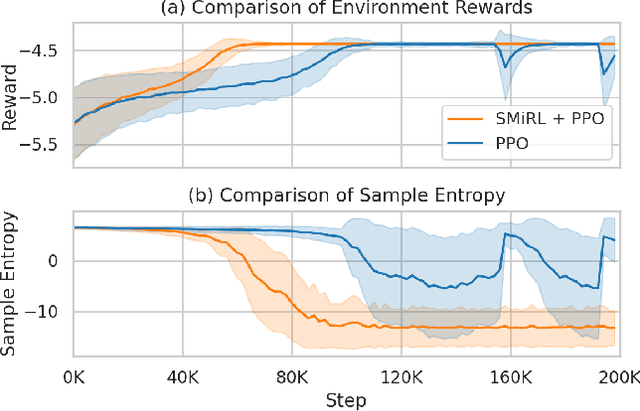
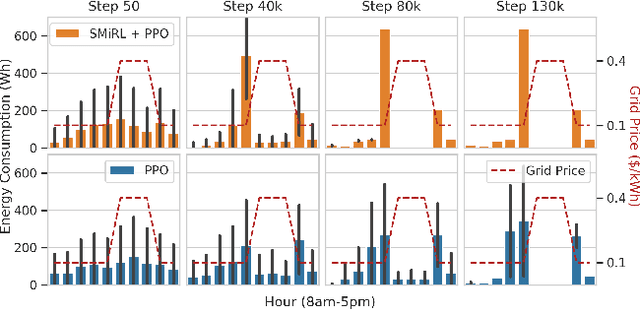
Abstract:Optimizing prices for energy demand response requires a flexible controller with ability to navigate complex environments. We propose a reinforcement learning controller with surprise minimizing modifications in its architecture. We suggest that surprise minimization can be used to improve learning speed, taking advantage of predictability in peoples' energy usage. Our architecture performs well in a simulation of energy demand response. We propose this modification to improve functionality and save in a large scale experiment.
Offline-Online Reinforcement Learning for Energy Pricing in Office Demand Response: Lowering Energy and Data Costs
Aug 14, 2021

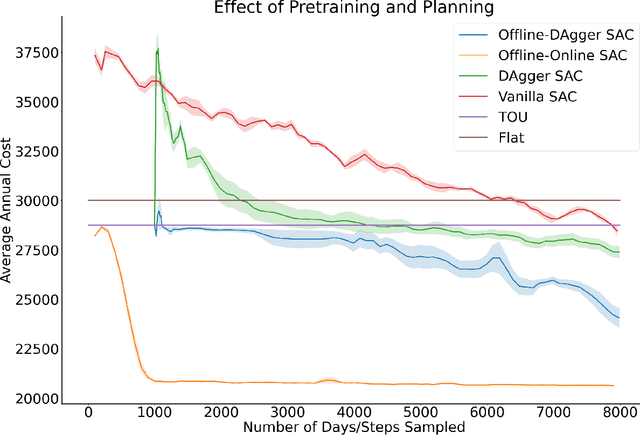
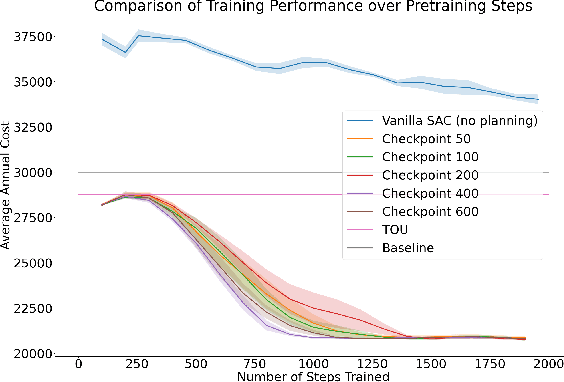
Abstract:Our team is proposing to run a full-scale energy demand response experiment in an office building. Although this is an exciting endeavor which will provide value to the community, collecting training data for the reinforcement learning agent is costly and will be limited. In this work, we examine how offline training can be leveraged to minimize data costs (accelerate convergence) and program implementation costs. We present two approaches to doing so: pretraining our model to warm start the experiment with simulated tasks, and using a planning model trained to simulate the real world's rewards to the agent. We present results that demonstrate the utility of offline reinforcement learning to efficient price-setting in the energy demand response problem.
Using Meta Reinforcement Learning to Bridge the Gap between Simulation and Experiment in Energy Demand Response
May 17, 2021
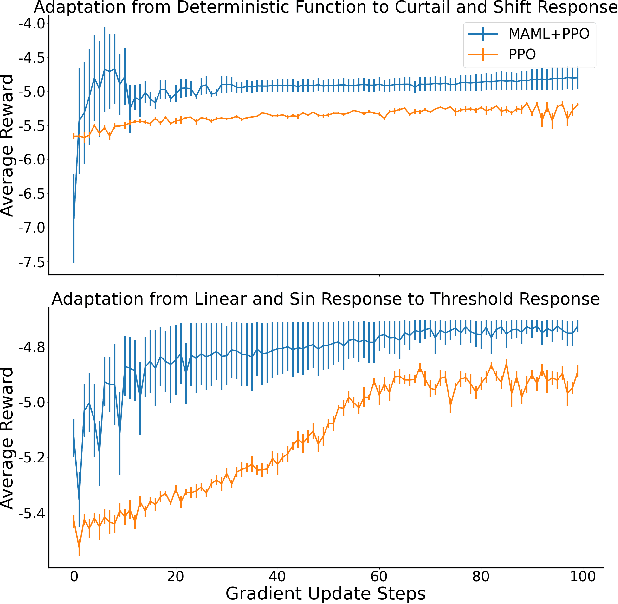
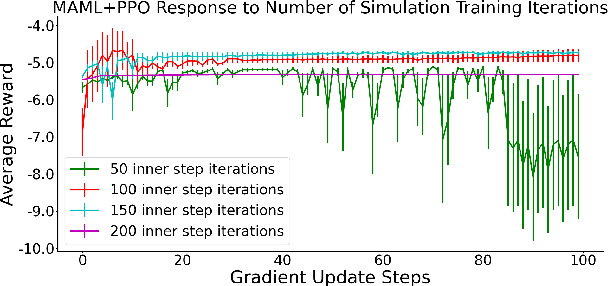
Abstract:Our team is proposing to run a full-scale energy demand response experiment in an office building. Although this is an exciting endeavor which will provide value to the community, collecting training data for the reinforcement learning agent is costly and will be limited. In this work, we apply a meta-learning architecture to warm start the experiment with simulated tasks, to increase sample efficiency. We present results that demonstrate a similar a step up in complexity still corresponds with better learning.
 Add to Chrome
Add to Chrome Add to Firefox
Add to Firefox Add to Edge
Add to Edge